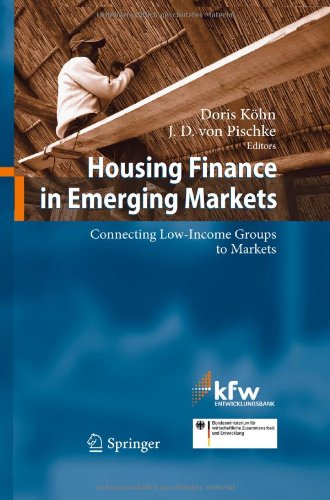

Most ebook files are in PDF format, so you can easily read them using various software such as Foxit Reader or directly on the Google Chrome browser.
Some ebook files are released by publishers in other formats such as .awz, .mobi, .epub, .fb2, etc. You may need to install specific software to read these formats on mobile/PC, such as Calibre.
Please read the tutorial at this link: https://ebookbell.com/faq
We offer FREE conversion to the popular formats you request; however, this may take some time. Therefore, right after payment, please email us, and we will try to provide the service as quickly as possible.
For some exceptional file formats or broken links (if any), please refrain from opening any disputes. Instead, email us first, and we will try to assist within a maximum of 6 hours.
EbookBell Team

4.4
32 reviewsThe growth of urban areas and population in middle and low income countries is a continuing trend. Urbanization expands as rural to urban migration offers better income opportunities in cities. This trend is both a source of development opportunities and challenges for the housing sector. On the one hand, housing is a large and growing market, and on the other, massive slums confirm the poor housing conditions in many developing countries. These adverse conditions mirror inadequate housing policies, inefficient or absent property registration, as well as limits to access to housing finance. Provision of affordable housing is therefore an important topic in the fight against poverty. This book focuses on solutions that improve the enabling environment for the poor in accessing housing finance. It explores how to develop and integrate housing finance into a sustainable financial system for developing countries and offers ways in which low-income families can obtain better access to housing finance. This book provides a conceptual framework for housing finance development and addresses practical solutions in the provision of housing finance and compares different approaches.
The global financial crisis which originated in the US sub-prime housing market has not altered the underlying reality of global housing finance: the majority of people in developing countries still do not have access to formal housing finance. Nor has it answered the biggest question: how can they be served in a sustainable way? Connecting this unserved group to appropriate housing finance products through robust financial systems must remain a top policy priority if these nations are to enjoy long term, broad-based economic growth. It is also a great opportunity for new and existing housing finance providers.
DAVID PORTEOUS, Director, Bankable Frontier Associates
Where property in the form of private homes is secure, people can focus on work rather than protecting their property. One of the major effects of the property rights reform driven by Hernando de Soto in Peru put more children into school. Why? Adults spent less time safeguarding their property and could search for and find better jobs. This enabled them to send their children to school. Houses are also important for those who start up businesses. The most practical source of finance beyond help from family and friends tends to be a mortgage on property. For a mortgage market to develop, banks have to be able to foreclose on property of those who cannot pay back. The obvious attractions of housing policy as a plank of social policy can also lead to policies that backfire, as the recent example of the United States shows. Housing finance is a major component of the fight against poverty. For property to yield all its benefits, institutional reforms are required – chief among them secure property rights for owners and enforceable creditor rights for financiers. Sensible regulations for zoning and construction also help. However, political pressure on banks to ignore the credit risk of home ownership or to cease foreclosures when things go wrong risks undermining sustainable housing finance.
MICHAEL KLEIN, Consultant, Former Chief Economist International Finance Corporation (IFC)